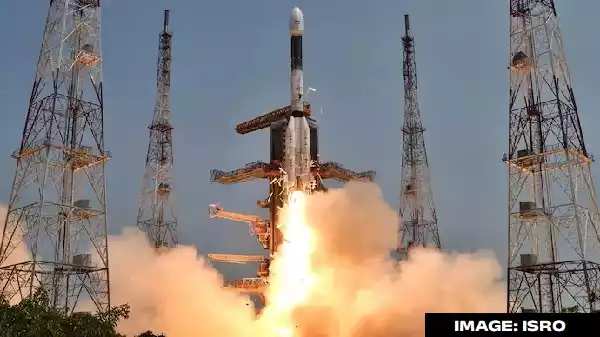ISRO launches GSLV-F12 NVS-01 Mission from Sriharikota Today
The Indian Space Research Organisation carried out the sixth launch of 2023, launching a 2232-kilogram satellite from its NavIC series into space. The NVS-1 launched from the Satish Dhawan Space Centre in Sriharikota aboard the GSLV-F12.
#WATCH | Indian Space Research Organisation (ISRO), launches its advanced navigation satellite GSLV-F12 and NVS-01 from Sriharikota.
— ANI (@ANI) May 29, 2023
(Video: ISRO) pic.twitter.com/2ylZ8giW8U
Buy Now: Flipkart | boAt Headphones | Adidas |
The NVS-1 satellite is the first of the next-generation NavIC satellites designed to improve the country’s navigation capabilities. The system was created in response to the country’s rising need for better location, navigation, and timing in the civil aviation sector.
The NavIC satellites are utilised in terrestrial, aerial, and maritime transportation, location-based services, personal mobility, resource monitoring, surveying and geodesy, scientific research, time distribution and synchronisation, and the broadcast of safety-of-life alerts.
The payload is a Rubidium atomic clock created in India by the Space Applications Centre in Ahmedabad. “It is a critical technology that only a few countries have,” Isro remarked.
The network includes India and a territory up to 1500 kilometres beyond the Indian border. The signals are intended to give users with greater than 20-meter position precision and timing accuracy greater than 50 nanoseconds.
The NavIC system runs in the L5 band, a protected frequency given exclusively to the Indian system. The NVS-1, which will be released on May 29, includes L1 band signals as well to expand the offerings. The GSLV is a three-stage rocket that has become one of India’s most successful launchers for both domestic and commercial satellites.
Isro declared the mission complete roughly 19 minutes after the spacecraft was launched. “Congratulations on the successful completion of the GSLVF12 mission.” The spacecraft has been precisely orbited. This mission follows the failure of the GSLV F10 mission, in which we had a problem with the cryogenic state. “I am pleased that the updates and changes we made to make the stage more reliable were a success,” said Isro chairman S Somnath following the mission.
This is the Indian space agency’s second launch in a month and the fifth of the year, following the PSLV launch in April with two Singaporean satellites and seven Indian experiments.
YOU MIGHT ALSO LIKE
Trending Searches Today |ISRO launches GSLV-F12 NVS-01 Mission from Sriharikota Today




